Training citizens on how to deal with fake news.
- 6 nationwide studies were conducted in European countries about the attitude, habits, needs, and ideas of citizens and experts about fake news.
- An International Conference of Specialists was organized for the development of a citizen training methodology based on the nationwide studies’ results.
- There were 12 Local Events, 2 in each European country that participated, to update, train, and talk with citizens of rural areas about fake news and the existing initiatives of the EU.
- The project results were presented at an International Conference in Brussels, where the dialogue at a European level began. The goal was to involve citizens, members of the Citizens Society, specialists, journalists, and policymakers.
Utilize it
- Study about misinformation. See the analytic results for each country here.
- Methodology and material for educational workshops on misinformation. See the action plan analytically here.
- List of interactive tools that help tackle fake news. See the tool list analytically here.
- Recommendations to the EU and the member states for tackling misinformation. See the full recommendation map here.

Training citizens on how to deal with fake news.
The results of the study we conducted in 6 European countries clearly show the need for one such project:
- 63% of the respondents mentioned that, in their countries, misinformation certainly is a problem.
- The respondents encounter news with information they believe to be misleading or false at least once per week on average.
- 46% of the population of the countries that participated in the study said that they can’t spot misinformation.
- The respondents, on average, aren’t sure about their fellow countrymen’s ability to spot news or information that distort reality or are false.
These are but some of the reasons for which citizens’ information and training are necessary. See the study’s full results here.

Training citizens on how to deal with fake news.
- 1 complete recommendation to the EU for the tackling of misinformation.
- 2 International conferences for:
drafting of a citizen education and information methodology (beginning of the project)
start of discussions at a European level (end of the project)
- 6 Nationwide Studies about misinformation.
- 12 Local events for the training and information of citizens from rural areas (2 in each county).
- 30+ tools for tackling fake news in a depository.
Funding
Project “Smart eDemocracy Against Fake News – SMARTeD” was funded with the support of the Europe for Citizens program of the European Union. (ID: 601576)



